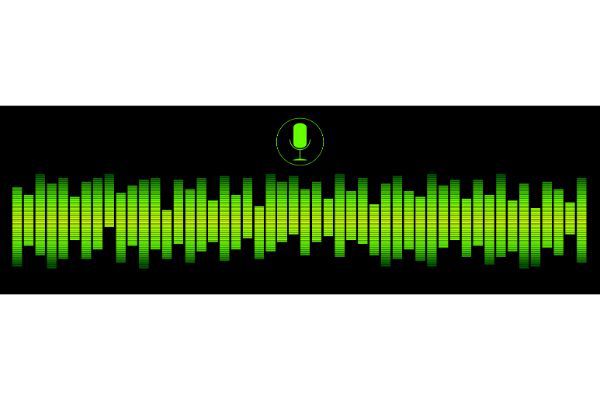The Next Wave: Using Legal Voice-Recognition Software

Many years ago when law firm receptionists used rotary phones without caller ID to take messages, and secretaries used typewriters to draft documents, attorneys used dictating machines, or Dictaphones, to create pleadings, correspondences, notes, and anything else that they needed. Trends always seem to return over time, even in the realm of legal technology. Currently, this statement may be applied to lawyers using voice recognition software with more frequency.
Sometimes called speech recognition, voice automation, or speech dictation software, voice recognition software has replaced the Dictaphone. The difference is that attorneys are dictating to software that is transferring their words immediately and directly to text instead of to secretaries who still have the task of listening to the recording and transcribing it. Eliminating this fundamental step of execution saves a significant amount of time and makes the 2020 versions of this software much more efficient and economical.
While this type of recognition software is not entirely novel it has become much more accurate and easier to use in the last ten years. Of even more importance, it is now much more affordable. Past 20th Century versions of the software were frustrating and inefficient. Years ago, it took hours to train Dragon voice recognition software to the user’s voice and manner of speaking. Today, there is an initial training where some text is read to the software for approximately 10 minutes.
Not all voice recognition software tools contain the same features, but most should allow users to:
- Dictate words and numbers
- Open documents
- Navigate within documents
- Insert pre-configured text or clauses using voice commands
- Record dictation and download it to voice recognition software
- Complete forms quickly by using artificial intelligence programming that search for keywords or phrases to complete legal forms
- Schedule appointments
- Write and send emails
- Search the Internet
Since I first experimented with voice-recognition software in the late 1990s, the leader in this area of software voice recognition has been Dragon NaturallySpeaking by Nuance. It is important to note that lawyers will want to purchase one of the professional versions specifically created for law firms.
Dragon has the Professional Series and the Legal Series of software tools. Dragon Professional Individual or Dragon Professional Group allows users to add their own terms but at a lower cost than the Dragon Legal series.
Dragon Legal Individual or Dragon Legal Group comes with many legal terms already in its vocabulary section. How many legal terms? This legal software is, “trained using more than 400 million words from legal documents to deliver optimal recognition accuracy for dictation of legal terms right from the start.”
Dragon claims on its website that its software is three times faster than typing, which is not hard to fathom since most people can talk faster than they type. This is not hard to believe, because let’s face it, no matter how fast you type, you can talk faster. Dragon also claims a 99% accuracy rate and the ability to achieve high accuracy even where there is background noise or the speaker has an accent.
For potential users who are not ready to commit to Dragon NaturallySpeaking, another option for voice recognition input, although inferior to the Dragon products, is Windows, which has had built-in speech recognition since Version 7. Apple added voice recognition beginning with Mountain Lion and higher versions of its Mac OS X operating system. Users may dictate content while controlling their computers with both the Windows and Mac versions. Using the built-in voice recognition software on your OS is free. But ease-of-use, accuracy, speed, and functionality is not quite as high as that of Dragon NaturallySpeaking.
Lawyers sell their services and saving time means saving money. With voice recognition software a very affordable option, legal professionals should investigate how they may save time on various everyday tasks. Today, voice recognition software is an expedient and accurate way to draft legal documents. Like those law schools that embrace technology, those law firms that effectively use and follow legal technological, enjoy a competitive advantage.
In 2012, CDTA accepted its first class of students with a more practical focus on modern legal education. This focus implements the same comprehensive learning platform as traditional law schools while considering and remedying the traditional deficiencies of law school graduates. At CDTA, not only do we educate students to be lawyers, but we also train and develop them to be exceptional trial advocates. Call us today at (760) 342-0900 or find out more online here.


